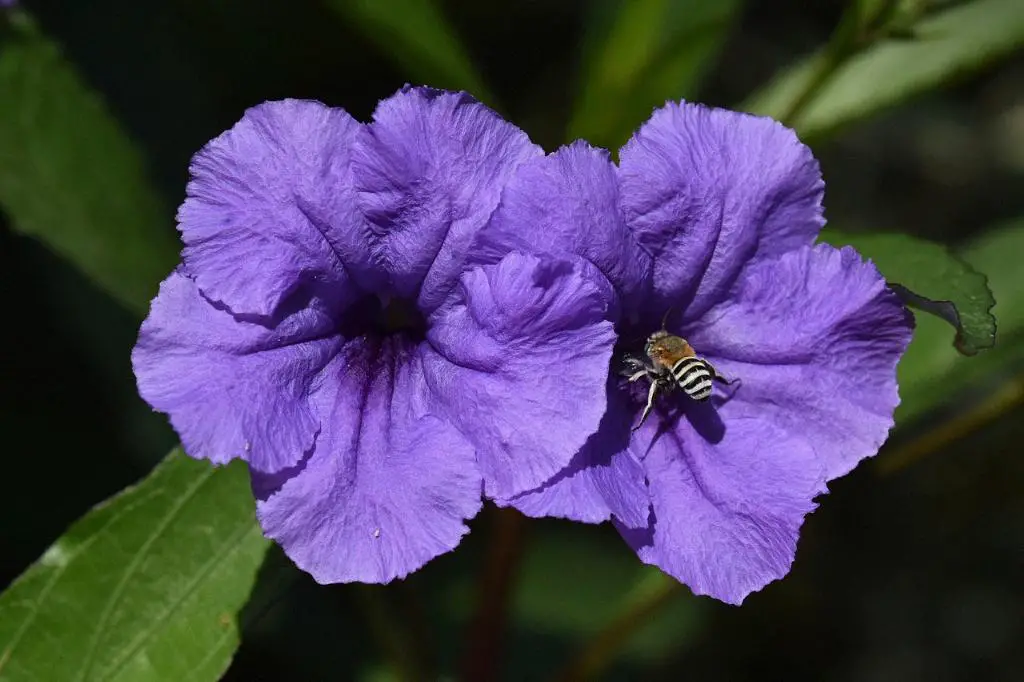When it comes to caring for your petunias, one of the most common questions that arise is how often they need to be watered. Petunias are known for their ability to withstand high temperatures and are generally low-maintenance when it comes to watering. However, the frequency of watering can vary depending on the specific type of petunias you have planted in your garden.
For most varieties of petunias, a general rule of thumb is to water them thoroughly once a week. This ensures that the roots receive an ample amount of moisture without the risk of overwatering, which can lead to root rot and other fungal diseases. It is essential to allow the soil to dry out slightly between waterings to prevent waterlogged conditions that can harm the plant.
Spreading types of petunias, on the other hand, may require more frequent watering due to their sprawling growth habit. These varieties tend to have a higher water demand and can quickly dry out in hot weather. Therefore, it is recommended to check the soil moisture levels regularly and adjust your watering schedule accordingly to keep the soil consistently moist but not waterlogged.
During periods of extreme heat or drought, petunias may need additional watering to help them cope with the stress of high temperatures and dry conditions. In such cases, it is best to water your petunias early in the morning or late in the evening to reduce water loss through evaporation and ensure that the plants have enough time to absorb the moisture before the heat of the day.
It is essential to water petunias at the base of the plant to avoid wetting the foliage, as this can promote the growth of fungal diseases. Using a soaker hose or drip irrigation system can help deliver water directly to the roots while keeping the leaves dry. Mulching around the base of the plants can also help retain soil moisture and reduce the need for frequent watering.
Observing the condition of your petunias is key to determining their watering needs. Wilting or drooping leaves are a sign that the plants need water, while yellowing or browning foliage can indicate overwatering. By paying attention to these visual cues and adjusting your watering practices accordingly, you can ensure that your petunias remain healthy and vibrant throughout the growing season.
When watering petunias, it is essential to provide enough moisture to reach the root zone, which is typically located 6-8 inches below the soil surface. Watering deeply and infrequently encourages the roots to grow deeper into the soil in search of water, promoting a strong and resilient root system that can better withstand environmental stress.
Young petunia plants may require more frequent watering as they establish themselves in the garden and develop their root system. Keep a close eye on newly planted petunias and water them as needed to help them get established and thrive in their new environment. As the plants mature, they will become more resilient to fluctuations in watering frequency.
While petunias are relatively drought-tolerant once established, they still require consistent moisture to thrive and produce abundant blooms. Be mindful of weather conditions and adjust your watering schedule accordingly to ensure that your petunias receive the water they need to flourish. Remember that it is better to underwater than to overwater, as petunias prefer slightly drier conditions.
In conclusion, the frequency of watering petunias can vary depending on the specific type of petunias you are growing and environmental factors such as temperature and rainfall. By following the guidelines outlined above and paying attention to the needs of your plants, you can ensure that your petunias receive the right amount of water to keep them healthy and vibrant throughout the growing season.

